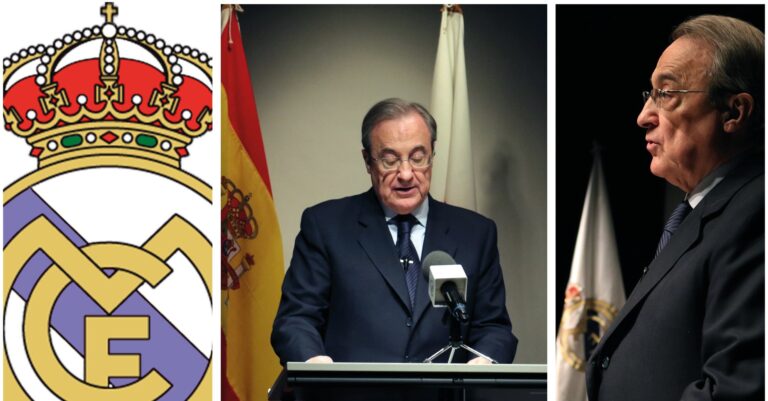Sport
“Real Madrid contacted me, but I wasn’t convinced by the project and I said NO”

In the 1990s, Real Madrid was going through a difficult period in European competitions, desperately seeking to reclaim its continental dominance. During this time, the Spanish club approached Italian coach Nevio Scala twice, offering him the position of head coach. However, Scala declined both offers—decisions that could have significantly altered the course of European football history.
Nevio Scala made a name for himself as the coach of Parma FC, leading the club to major titles, including the 1993 Cup Winners’ Cup, the UEFA Super Cup, and the UEFA Cup in 1995. His success caught the attention of Real Madrid’s management, who were looking for a leader capable of restoring the club to its former glory.
In an interview with La Gazzetta dello Sport, Scala revealed that Real Madrid first contacted him in the early 1990s. At the time, he was deeply committed to Parma FC and the Tanzi family, who owned the club. His loyalty to the project he had built led him to reject Madrid’s offer. This decision highlighted his strong sense of dedication and integrity toward his team.

In 1999, Real Madrid approached Scala again with another offer. However, the Italian coach was not convinced by the club’s sporting project. He felt that it was neither the right time nor the right opportunity for him, prompting him to decline the offer a second time. Instead, he chose to continue his coaching career with Borussia Dortmund and later Beşiktaş.
Scala’s decision to turn down Real Madrid raises intriguing questions about what might have been. Had he accepted the job, could he have accelerated the club’s return to European dominance? Would his football philosophy have transformed Real Madrid’s style of play? While these questions remain unanswered, one thing is certain: the club eventually found its way back to success, winning the 1998 Champions League against Juventus, marking the beginning of a new era of triumphs.
Despite Scala’s refusal, Real Madrid continued its search for success by hiring other renowned coaches. The club managed to rebuild itself, attract world-class talent, and establish a solid structure to support its ambitions. This resilience helped Real Madrid reclaim its place as a dominant force in European football.
Meanwhile, Nevio Scala continued his career with distinction. His time at Borussia Dortmund and Beşiktaş enriched his experience and reinforced his reputation as a competent and respected coach. While these stints did not bring the same level of success as at Parma, they shaped his career and showcased his ability to adapt to different footballing environments.
Scala’s loyalty to his principles and commitments is a defining aspect of his career. In a football world often driven by financial considerations and prestige, his decision to stay loyal to Parma and reject Real Madrid underscores his integrity and devotion to projects he truly believed in.
The journeys of both Real Madrid and Nevio Scala illustrate how individual decisions can influence the course of football history. The choices made by coaches and players—whether to accept or decline offers—have lasting repercussions that extend far beyond the pitch, shaping the trajectories of clubs and careers alike.
Today, in 2025, Real Madrid continues to dominate the European stage, boasting iconic players and a collection of prestigious titles. The club has evolved and adapted to modern challenges, cementing its position among the giants of world football. This success is the result of strategic decisions, smart investments, and a clear vision for the future.
Nevio Scala, on the other hand, remains recognized as an influential figure in 1990s football. His legacy endures, particularly at Parma, where his achievements left a lasting mark. His career serves as a reminder of the importance of personal conviction and staying true to one’s values in the world of sports.
The story of Scala and Real Madrid highlights the unpredictability of football history. Decisions made at a given moment can have long-term consequences, shaping the football landscape in unexpected ways. This reality adds a fascinating dimension to the study of the sport and the individual paths that define it.
Ultimately, Scala’s refusal did not hinder Real Madrid’s rise back to European glory. The club overcame challenges and found the necessary resources to achieve its goals. This resilience reflects the determination and passion that have driven Real Madrid since its foundation.
For football enthusiasts, the story of Nevio Scala and Real Madrid offers valuable insights into the choices and opportunities that shape the sport. It also emphasizes the importance of patience, perseverance, and staying true to one’s convictions in the pursuit of excellence.
Although Scala and Real Madrid never crossed paths as initially envisioned, their respective legacies continue to shape football’s history in their own unique ways.

 Sport11 months ago
Sport11 months ago“I’m not trying to criticize Ancelotti, but I’m not happy with him for benching that player”: Bellingham Expresses Frustration Over Ancelotti’s Tactical Decision

 Sport11 months ago
Sport11 months agoBREAKING: Manchester City vs Liverpool Clash Cancelled! Title Race Takes a Twist

 Sport11 months ago
Sport11 months agoArsenal Poised for January Swoop on €70 Million Star Dusan Vlahovic

 Sport11 months ago
Sport11 months agoWHAT ON GOD’S GREEN EARTH DID WE JUST SEE?!

 Sport11 months ago
Sport11 months agoReal Madrid: Carlo Ancelotti’s Surprising Revelations About an Unexpected Quality of Vinicius

 Sport11 months ago
Sport11 months agoBREAKING: Arsenal’s Champions League Quarterfinal Opponent Revealed After Monaco’s Dramatic Win – Tough Challenges Await Arteta’s Men

 Sport11 months ago
Sport11 months agoChelsea Players Facing Suspension as Yellow Cards Mount

 Sport11 months ago
Sport11 months agoKey Arsenal Player Set for Return as Gunners Face Struggling Everton
















